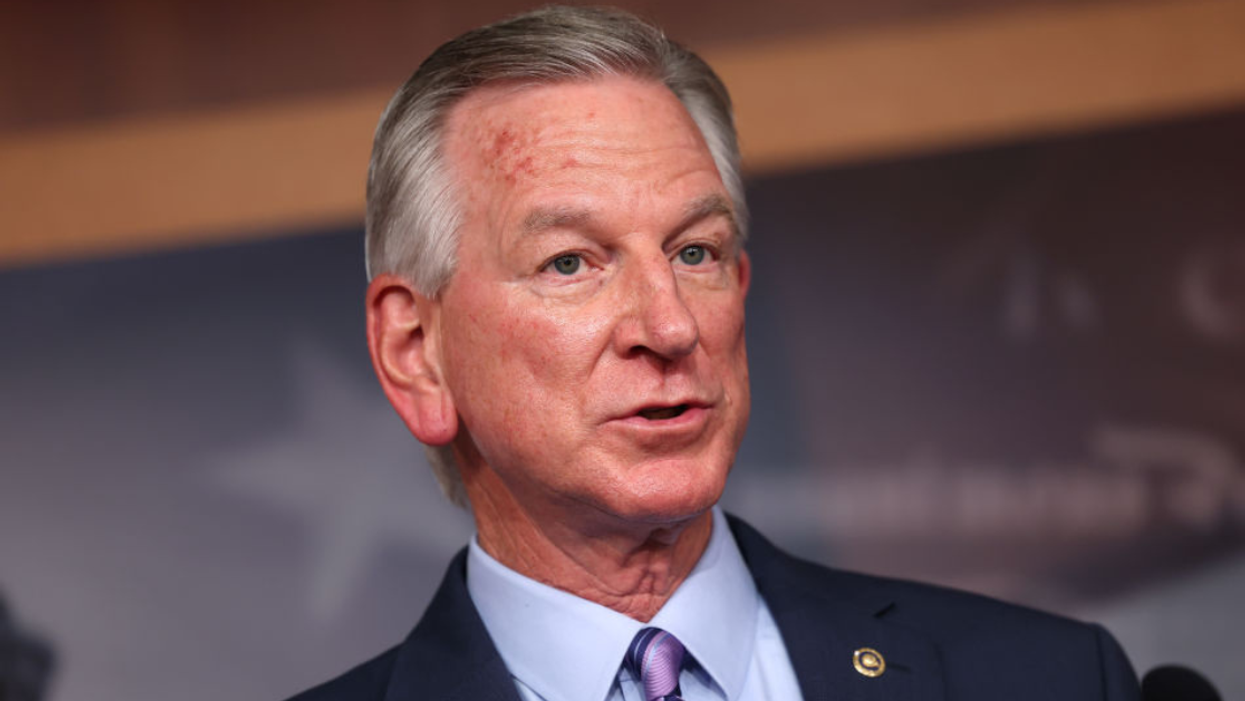Alabama Republican Senator Tommy Tuberville took to Twitter on Tuesday to celebrate his state receiving over $1 billion in funding for broadband efforts through the bipartisan infrastructure law, despite voting against the bill.
Tuberville emphasized the importance of broadband for rural communities and the economy, expressing his satisfaction with Alabama's receipt of crucial funds to expand broadband access in underserved areas.
He wrote:
"Broadband is vital for the success of our rural communities and for our entire economy."
"Great to ee Alabama receive crucial funds to boost ongoing broadband efforts."
You can see what Tuberville wrote below.
Critics accused Tuberville of hypocrisy for celebrating the benefits of a bill he opposed.
A Community Note placed beneath Tuberville's tweet acknowledges Tuberville's contradictory stance and highlights the fact that he voted against the infrastructure bill when it came before the Senate.
It questions Tuberville's sudden support and notes the lack of consistency in his position on the issue:
"Important context to know here: while Sen Tuberville is celebrating this grant now, he voted against it when it came up in the Senate, and never expressed support for it, until now."
Tuberville was swiftly called out.
The funds for expanding broadband access in Alabama are coming from the National Telecommunications and Information Administration (NTIA), which oversees grant programs related to broadband.
The NTIA has announced the allocation of funds from the Commerce Department's Broadband Equity, Access, and Deployment program to each state. States that receive these funds must submit a plan to the NTIA within 180 days, outlining how they will utilize the funding to enhance broadband access.
The bipartisan infrastructure law, signed by President Joe Biden in November 2021, included a historic $65 billion investment in expanding high-speed and affordable broadband across the country.
Tuberville's spokesperson, Steven Stafford, defended Tuberville's actions and dismissed the notion of hypocrisy.
Stafford referred to Tuberville's previous statement opposing the Bipartisan Infrastructure Law, stating that Tuberville voted against the bill due to concerns about wasteful spending. He emphasized that despite his opposition, Tuberville now advocates for the funding to benefit Alabama, believing that the people of Alabama deserve their fair share.














 @DuncanCecil/X
@DuncanCecil/X @@realDonaldTrump/Truth Social
@@realDonaldTrump/Truth Social @89toothdoc/X
@89toothdoc/X @xray_media/X
@xray_media/X @CHRISTI12512382/X
@CHRISTI12512382/X
 @sza/Instagram
@sza/Instagram @laylanelli/Instagram
@laylanelli/Instagram @itssharisma/Instagram
@itssharisma/Instagram @k8ydid99/Instagram
@k8ydid99/Instagram @8thhousepath/Instagram
@8thhousepath/Instagram @solflwers/Instagram
@solflwers/Instagram @msrosemarienyc/Instagram
@msrosemarienyc/Instagram @afropuff1/Instagram
@afropuff1/Instagram @jamelahjaye/Instagram
@jamelahjaye/Instagram @razmatazmazzz/Instagram
@razmatazmazzz/Instagram @sinead_catherine_/Instagram
@sinead_catherine_/Instagram @popscxii/Instagram
@popscxii/Instagram
